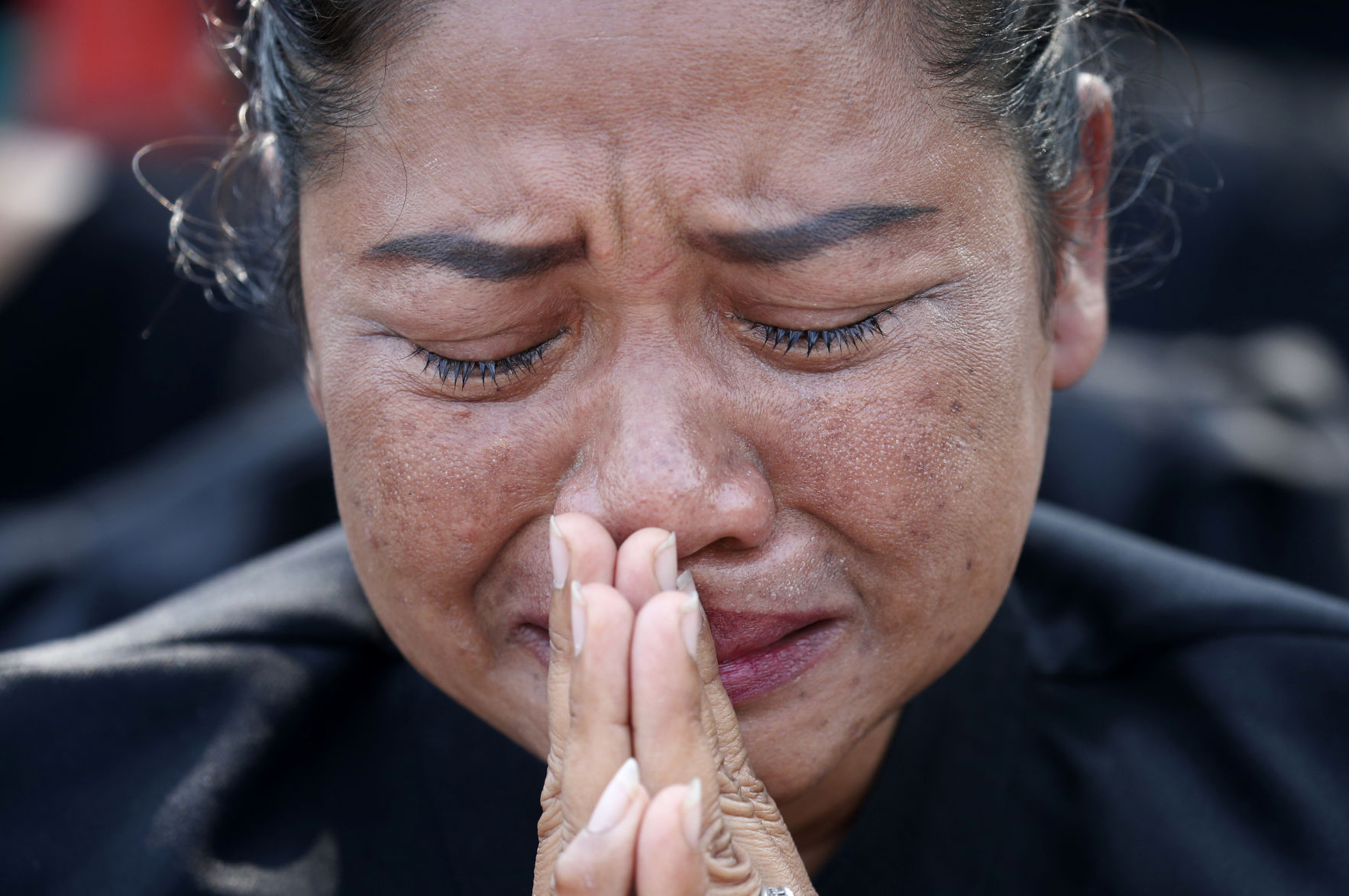BANGKOK (AP) — The cremated remains of Thailand’s King Bhumibol Adulyadej were transferred Friday to spiritually significant locations for Buddhist rites that will prepare them to be enshrined on the final day of an elaborate funeral that has transfixed the
BANGKOK (AP) — The cremated remains of Thailand’s King Bhumibol Adulyadej were transferred Friday to spiritually significant locations for Buddhist rites that will prepare them to be enshrined on the final day of an elaborate funeral that has transfixed the nation.
Hours after the late monarch was cremated in a ceremony steeped in centuries of tradition, his son King Maha Vajiralongkorn returned to the site to bathe Bhumibol’s charred bones and place them in golden urns. The remains were then moved to the Dusit Maha Prasad Throne Hall and Temple of the Emerald Buddha in Bangkok’s Grand Palace for monks to bless.
On Thursday night, just before midnight, smoke rose from the ornate crematorium built across from the palace in the year since Bhumibol died aged 88, signaling his cremation had taken place following a day of spectacular funeral processions broadcast worldwide.
Bhumibol’s death on Oct. 13, 2016, after a reign of seven decades sparked a national outpouring of grief for a monarch who was regarded by many Thais as a father figure. Yet is has also ushered in a sense of uncertainty for Thais who had grown used to Bhumibol serving as a unifying presence in a country regularly beset by political upheaval.
The five-day funeral began Wednesday with Vajiralongkorn performing Buddhist merit-making rites. On Thursday, a ceremonial urn representing Bhumibol’s remains was transferred from the throne hall to the crematorium in somber processions involving thousands of troops, a golden palanquin, a gilded chariot and a royal gun carriage.
Sawang Jiravorapat, 60, watched ceremonies on a TV inside the pharmacy he owns.
“His goodness will forever be in our hearts, because there is so much goodness he has given us,” Sawang said. “It is a great example to the coming generations for them to be vigorous and sustainable.”
The funeral will conclude Sunday once Bhumibol’s remains are enshrined and placed on royal pedestals in the throne hall and within two temples in Bangkok closely associated with the royal family: Wat Bavoranives and Wat Rajabopidh.
On Thursday, a day designated a public holiday in the kingdom, tens of thousands of mourners dressed all in black watched the processions from streets in Bangkok’s historic district and millions more saw broadcasts aired live on most TV stations and shown at designated viewing areas across the country.
The adulation Bhumibol inspired was fostered by palace courtiers who worked to rebuild the prestige of a monarchy that lost its mystique and power when a bloodless 1932 revolution ended centuries of absolute rule by Thai kings.
That effort built a semi-divine aura around Bhumibol, who was protected from criticism by a draconian law that mandates prison of up to 15 years for insulting senior royals.
But he was also genuinely respected for his development projects and personal modesty, though his influence waned in his final years.
The lese majeste law has been used with increased frequency by the military junta that overthrew a democratically elected government in 2014.
The law has discouraged open discussion about the role of the monarchy within Thai society even as the country evolves in other ways. Local media engages in self-censorship and foreign media have had stories about the Thai monarchy censored, by blocking their websites or preventing distribution of print editions within Thailand.




